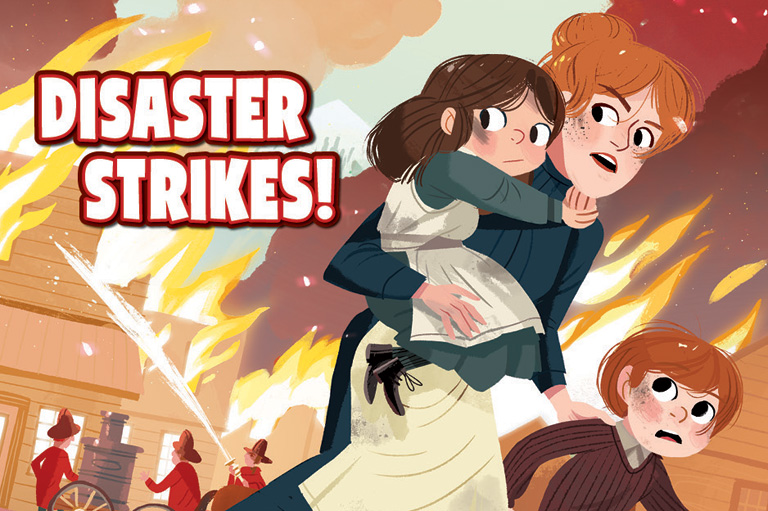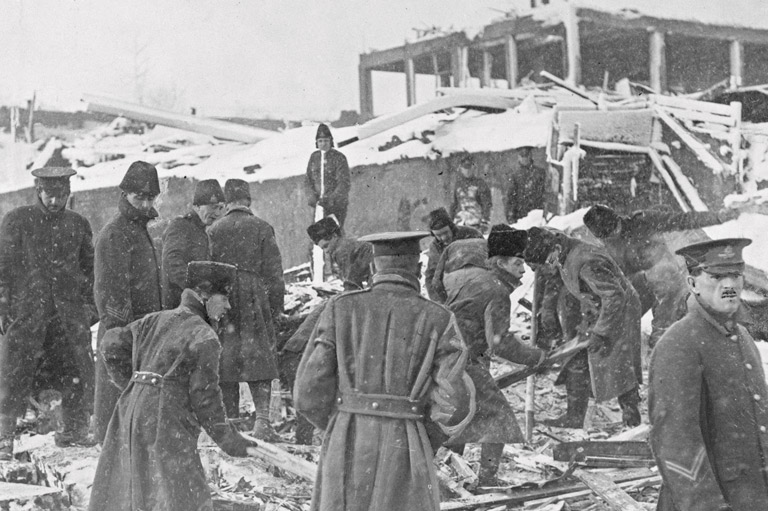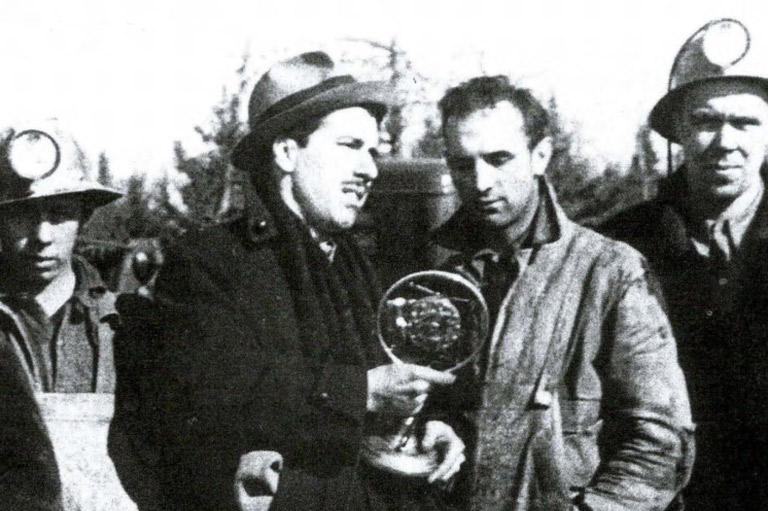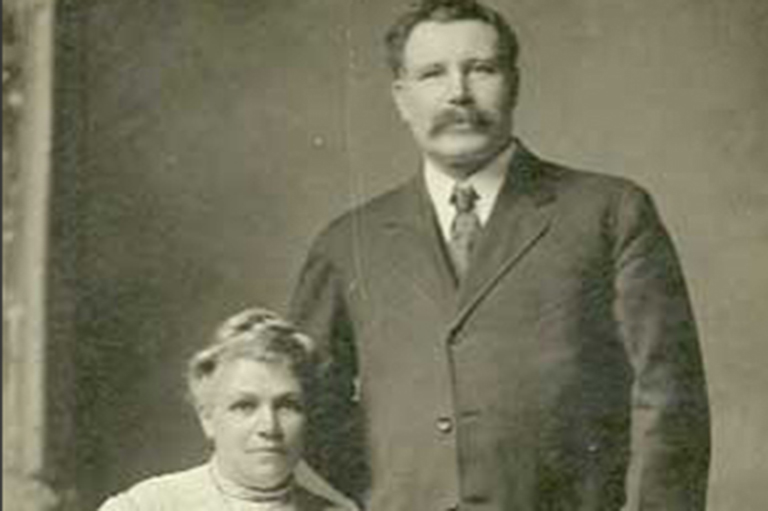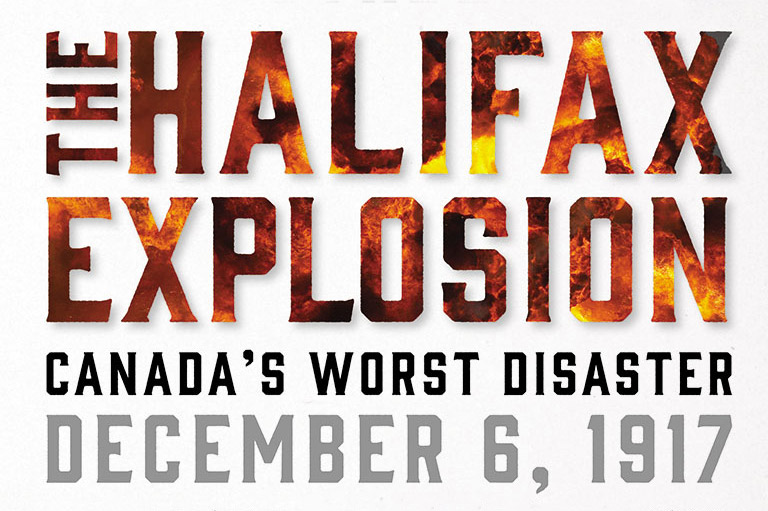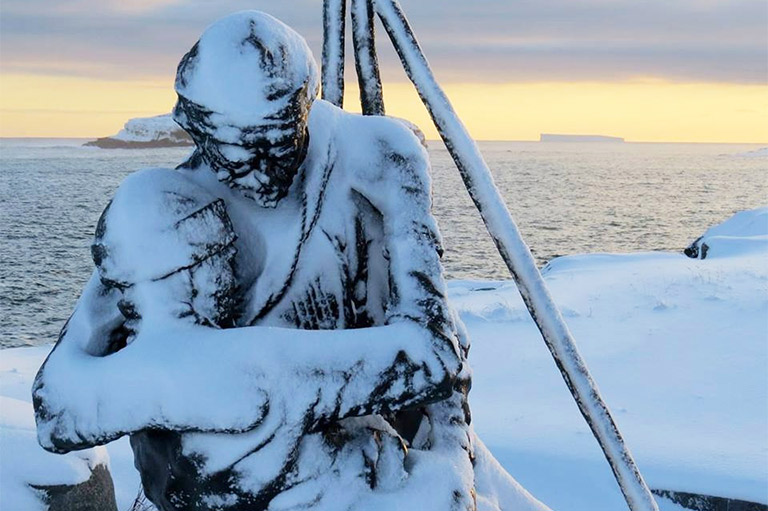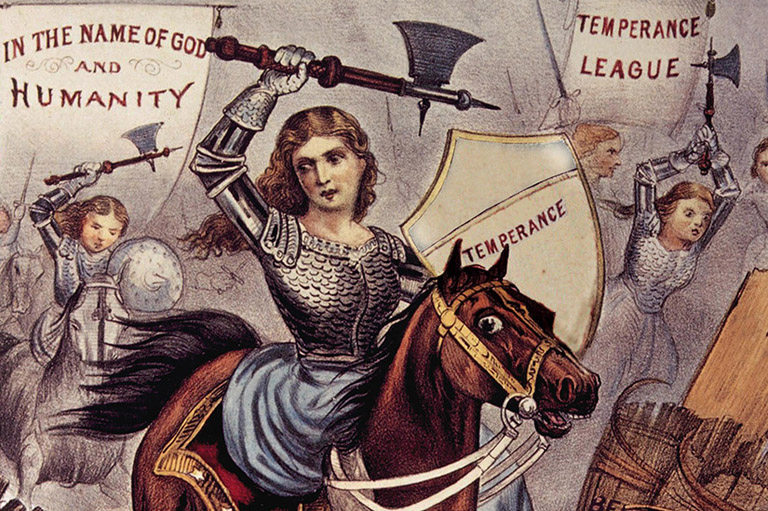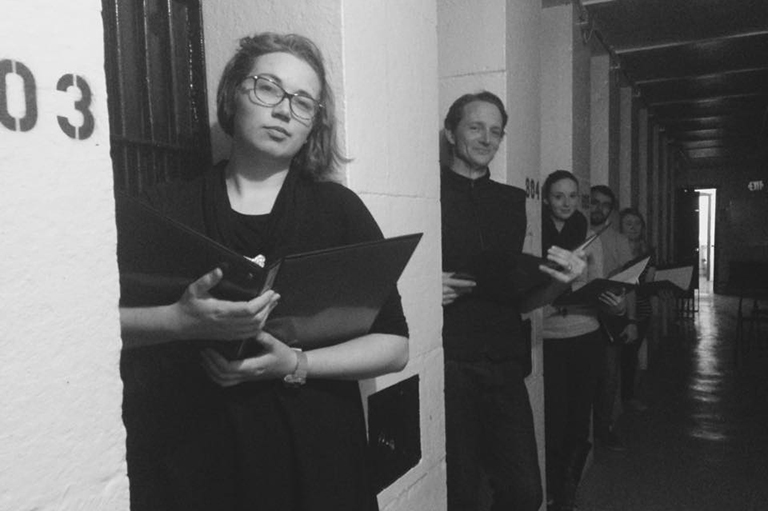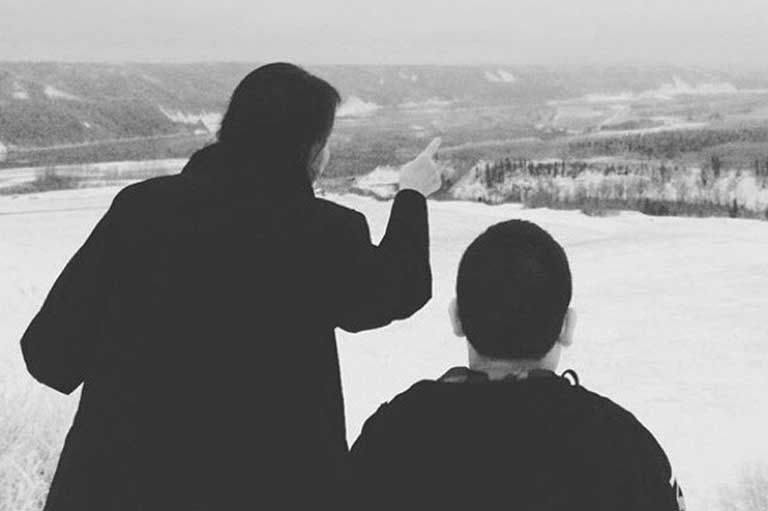The Disaster Song Tradition
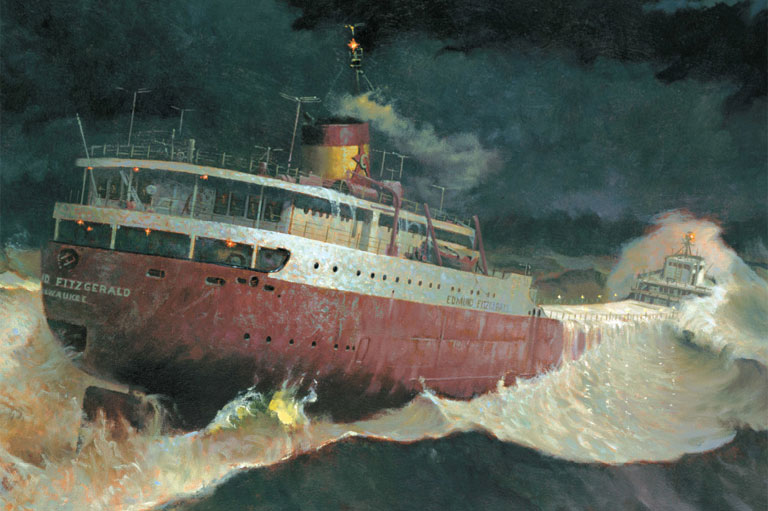
Tragic events like the sinking of the Titanic in 1912 or the 2009 Cougar Helicopter crash may seem like odd subjects for folk songs. Yet current research reveals that people have been writing songs about disasters for many years — a tradition that continues to influence contemporary song-writers.
In 2012, Canada’s History spoke with Heather Sparling, an ethnomusicologist at Cape Breton University and one of the researchers behind the project “Disaster Songs in Canada.” Listen to the podcast (19:40):
We also spoke with Joe Scanlon, a sociologist of disaster and another researcher on the project. Joe told us about a paper he wrote that looked specifically at Titanic folk songs. Listen to the podcast (15:01):
The Disaster Songs in Canada project explores a number of questions surrounding disaster songs, from the motivations of the song-writers, to the accuracy of their lyrics, to the role these songs play in our public memory of such tragedies. Although you may not realize, disasters of all types — from shipwrecks to mining accidents to pandemics — have informed hundreds of folk songs in Canada. When Heather Sparling set out to find songs written about Canadian disasters, her list quickly grew to include over 300 songs. As a result, they’ve narrowed their scope to focus on Atlantic Canada.
We asked Heather about a popular disaster song, “The Wreck of the Edmund Fitzgerald” by Gordon Lightfoot, which was featured in the April 2012 issue of Kayak: Canada’s History Magazine for Kids. The Edmund Fitzgerald got caught in a storm on Lake Superior on November 10, 1975, killing all 29 crew members on board. A year later, Canadian singer-songwriter Gordon Lightfoot released his song, “The Wreck of the Edmund Fitzgerald,” which continues to be one of his most popular works.
Heather notes that “The Wreck of the Edmund Fitzgerald” demonstrates that disasters continue to be a popular subject for folk songs.
“I’ve been fascinated by the fact that disaster songs continue to be written and in very large numbers about quite recent events,“ she said. “To the kids who read your magazine it’s old history, but to many adults it’s not such old history. A song from the 1970s about the Edmund Fitzgerald is an example of how disaster songs are not just something that is from folk cultures of our great-grandparent’s ages, for example.”
This song also raises interesting questions about the role history and accuracy play in a songwriter’s creative process. In 2010, a review of the disaster revealed that large waves caused the ship to sink — not human error, as had previously been believed. As a result, Lightfoot altered his lyrics in live performances of the song, demonstrating a concern for historical accuracy in his song-writing.
Joe Scanlon is interested in media representation of disasters. As a recent project, he looked at 43 songs written about the Titanic and found that they were generally more accurate accounts of the event than movies or novels relating to the event.
Canada’s History spoke to Joe to see why folk songs may be a more accurate representation of disasters than other media accounts.
“I think to some extent it’s because folk singers perform in front of audiences who are knowledgeable,” Joe said. “People that write movies don’t have to stand in front of an audience that has seen the Titanic sink, for example.”
Their research into disaster songs is not limited to marine disasters. The website is divided into four themes: mining, marine, airline, and miscellaneous disasters. Each section contains a list of disasters, with a historical overview of the event and a list of related songs and lyrics. Because there are so many songs available, they’re currently focusing on events that have had more than one song written about them.
The website, which includes a forum for visitors, has proven to be a great way to exchange information with others, Heather said.
“It’s kind of a tool for both sharing the results back to a community that might be interested in this topic, but also for getting additional information that’s valuable to the project.”
With 7 uniquely curated newsletters to choose from, we have something for everyone.
Videos
Here are a few of the songs that Heather and Joe speak about in their interviews:
“The Wreck of the Edmund Fitzgerald,” by Gordon Lightfoot
“The Titanic” or “It Was Sad When That Great Ship Went Down”
As Joe Scanlon’s research indicates, many songs have been written about the Titanic. This is one of the earliest and well-known songs (recording by Ernest Stoneman in 1924).
Springhill
The mining community of Springhill, NS, suffered three mining disasters in 1891, 1956, and 1958. After the 1958 accident, which claimed the lives of 74 workers, the mines were shut down. Springhill has been the subject for a number of folk songs over the years. In her interview, Heather Sparling tells us about a song called Springhill by Brian Vardigans, which you can listen to on his website. Another popular song (below) is “The Ballad of Springhill,” by Peggy Seeger and Ewan MacColl. This song has been covered by a number of groups, including The Dubliners, Peter, Paul and Mary, and U2.
“Captaine Torres,” by James Keelaghan
This song is about two cargo ships, the Capitaine Torres and the Johanna B, that sank in the Gulf of St. Lawrence on December 7, 1989. Thirty-nine crew members from the two ships were killed. In this live recording, song-writer James Keelaghan tells about the last moments of the ships’ crew members.
We hope you’ll help us continue to share fascinating stories about Canada’s past by making a donation to Canada’s History Society today.
We highlight our nation’s diverse past by telling stories that illuminate the people, places, and events that unite us as Canadians, and by making those stories accessible to everyone through our free online content.
We are a registered charity that depends on contributions from readers like you to share inspiring and informative stories with students and citizens of all ages — award-winning stories written by Canada’s top historians, authors, journalists, and history enthusiasts.
Any amount helps, or better yet, start a monthly donation today. Your support makes all the difference. Thank you!

